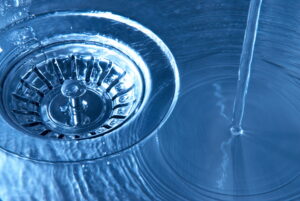Water softeners are pretty well-known these days. Many homes throughout our area rely on water softeners to enjoy soft, clean water that’s free of pesky minerals that might do harm to your plumbing system or your skin. But it wasn’t always like this.
Back in the day, there wasn’t a way to get rid of minerals in your water. People dealt with hard water all the time. This is the reason why a lot of old plumbing appliances have so much limescale and sediment deposits when newer ones might not be in such rough shape.
Now, we have access to powerful water softeners in Lacey which can simply and easily remove all of the minerals from your water supply.
How does it work? Is it bad for your water or home? Are there any downsides to investing in a water softener? Is hard water really that bad?
These are excellent questions that we’ll answer for you down below.
How It Functions
A water softener uses a specific chemical reaction to extract the minerals from your home’s water source.
Ionically charged resin beads attract the minerals from your water tank, which then bind together. Those resin beads are sent to a tank which is called the “brine tank,” filled with salty water to help shed the minerals that have been attached to the resin beads. Eventually, you’re left with a tank of clean water with no minerals, and a brine tank that’s full of salt water and minerals.
There are minor mechanical components that monitor the process and ensure nothing is going wrong, but just a simple chemical reaction can remove all of the minerals from your water.
Nice, right?
Frequently Asked Questions
If you’re still not convinced that a water softener can be a powerful tool for your home, then we’d like to answer your questions so you can feel more confident in this technology.
- Is it bad for your water or home? No! A water softener is a pretty common household appliance that can do its work quietly and effectively in your basement or crawlspace. After enough time, you might even forget it’s there!
- Are there any downsides to investing in a water softener? The only downside is the regular maintenance and replacement of brine that you’ll need to invest in over time. But compared to what can happen with hard water, this is worth it.
- Is hard water bad for you? Hard water isn’t bad for humans to ingest, but it’s not good for certain applications of water. For instance, hard water can make your skin, hair, and scalp dry and brittle since soaps and shampoos have a harder time dissolving. Pipes and drains can get ruined by minerals that have solidified and formed layers of sediment. Overall, hard water can ruin plumbing systems and cause problems for your skin, plumbing system, clothes, and dishes.

